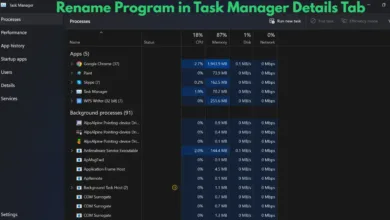How FSM Software Addresses Solar Business Challenges?

Reduction in carbon emissions is the need of the hour – and many nations are adopting sustainable energy management practices to meet carbon footprint limits.
Solar energy is growing in its technological effectiveness and being rapidly adopted by commercial and residential customers. To cater to this need and growing demand – it is important to keep up using software.
Solar business software is key to implementing sustainable energy management practices for the solar industry – read more to learn its role in enabling solar businesses.
Challenges in implementing best practices for sustainable energy management
Here are five key challenges that a solar business will face while implementing sustainable energy management practices:
- Investment of capital: the solar industry is still nascent and many businesses fall under the SME category. Energy transitions will require substantial capital to evolve from traditional energy sources to renewable ones like solar.
- Justifying reliability: solar energy is dependent on weather conditions and the intensity of available sunlight. Solar businesses have to take measures to ensure continuous electricity supply by designing their offer and systems accordingly.
- Skilled workforce: being a new industry, there is a shortage of skilled field service technicians who are capable of completing jobs. Upskilling initiatives are a requirement to ensure workforce availability.
- ROI uncertainty: customers do not understand how solar energy systems can truly generate an ROI for the investment made. Initiatives to educate the customer on calculating long-term energy savings can help.
- Regulatory uncertainty: renewable energy is strongly supported by governments and global policymakers to enable the transition. This support may dwindle in case of the invention of any new technology that is better suited to deal with greenhouse gas emissions.
How does solar business software help overcome sustainable energy management challenges?
Solar business software is a dedicated field service management tool that helps the solar industry manage its operations, marketing, sales, and customer service in a single place.
Here’s how it helps implement the best sustainable energy management practices:
Tracking and managing maintenance schedules
Maintenance is a recurring and important activity that ensures your customers continue to engage in sustainable energy practices. It can monitor the installed solar panels in real-time and track the equipment’s health.
On any instance of less output delivery or fault, the project managers get immediately notified.
Also, the solar business software will help you keep track of various maintenance activities carried out historically and help make decisions.
Allocate resources and workforce
Efficient allocation of resources and workforce is important because the solar industry is still nascent. It is not easy to get equipment for skilled field service technicians who can take up jobs as the demand rises.
Hence, solar business software helps allocate jobs and required resources. It also helps keep track of job completion and manage workforce attendance to align productivity with project timelines.
For example, the software can assign nearby job locations to a single field service technician and route their to-do list accordingly.
Documentation of work
Installation and maintenance of solar equipment also involve usual project documentation requirements. If your FSM software has mobile access, then it is possible to send images, videos, or files right from the site to the manager in charge for any help or direction.
This also means you can share project updates with customers to showcase work completed and pending jobs.
Documenting also helps improve processes as you record any usual activities, devise mitigation strategies, or train new employees.
Engage and educate customers
As sustainable energy management is still new, a solar business may have to invest in educating its customers about the solar industry and its best practices.
The creation of marketing collaterals, documentation, DIY help centers, and articles that educate consumers are some ways to implement customer education – for which, solar business software helps in hosting content.
Customer engagement also involves notifying customers about maintenance schedules, entertaining any rescheduled requests by them directly via apps, knowing the real-time location of assigned workers, and more.
This reduces customer support tickets and builds brand trust.
Read Also: Spotify Data Analytics For Musicians
Scale your solar business with FSM or solar business software
Chart your operational processes and have a clear understanding of automation opportunities where solar business software can be replaced.
At Zuper, a comprehensive field service management solution enables you to implement best practices for sustainable energy management for your clients – book a demo today





